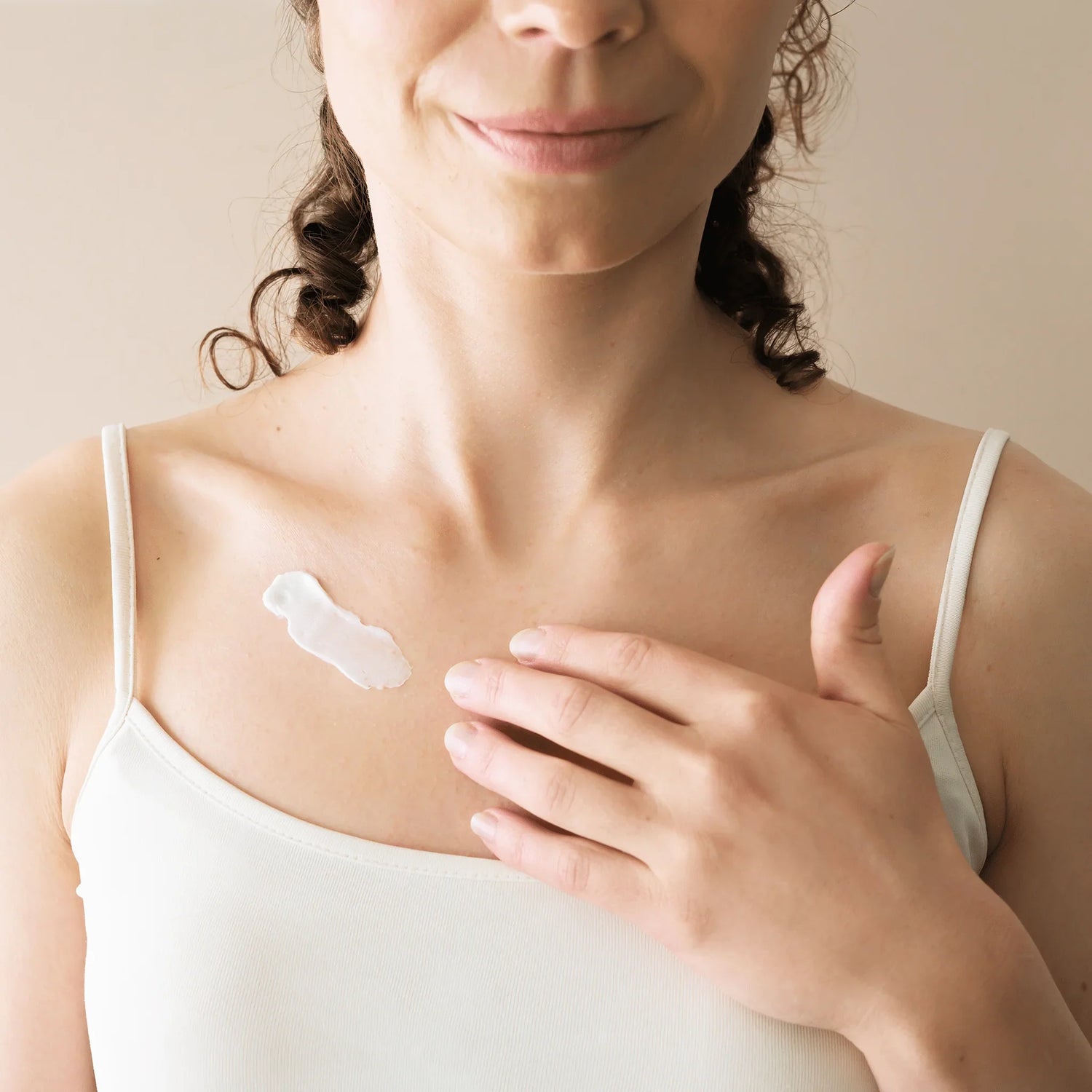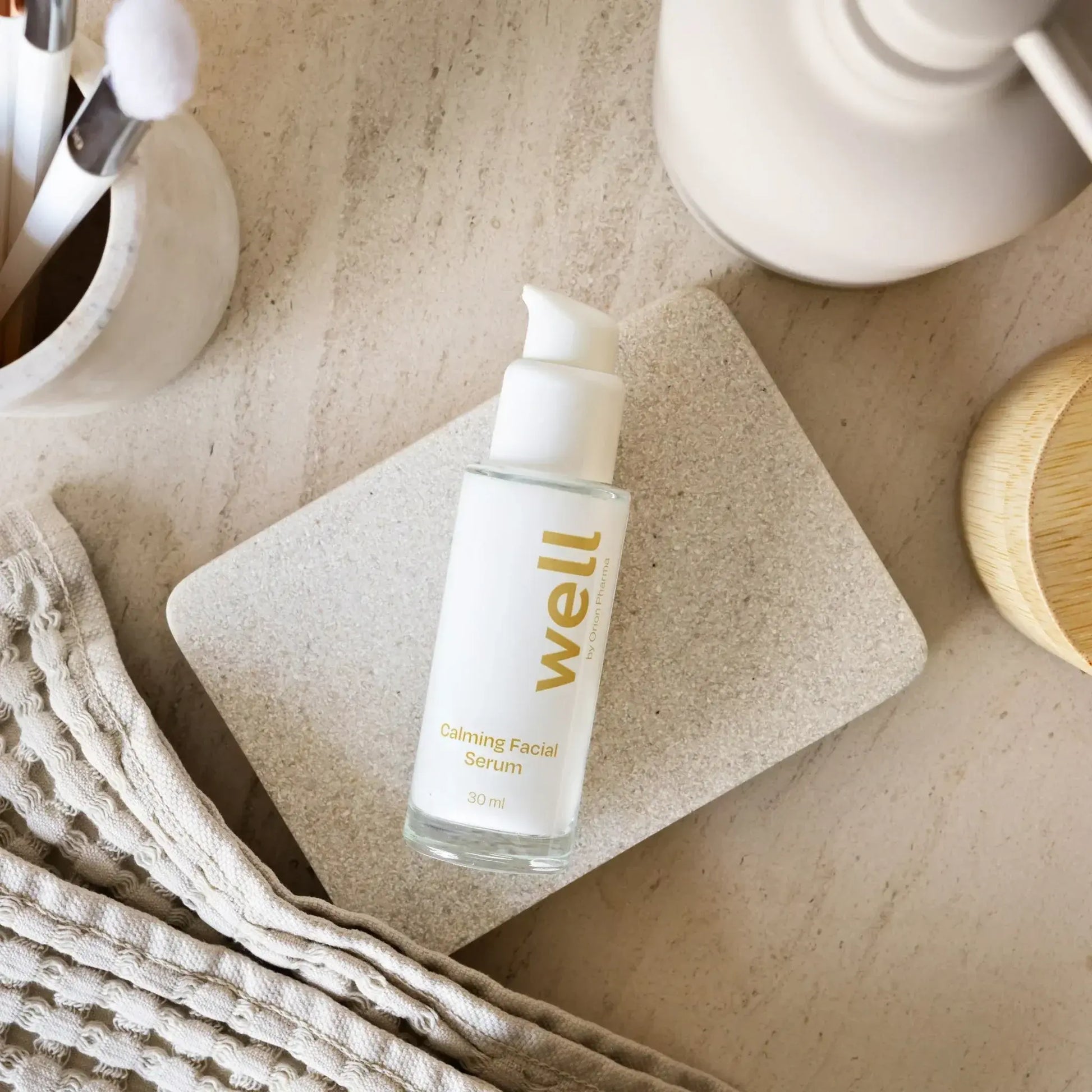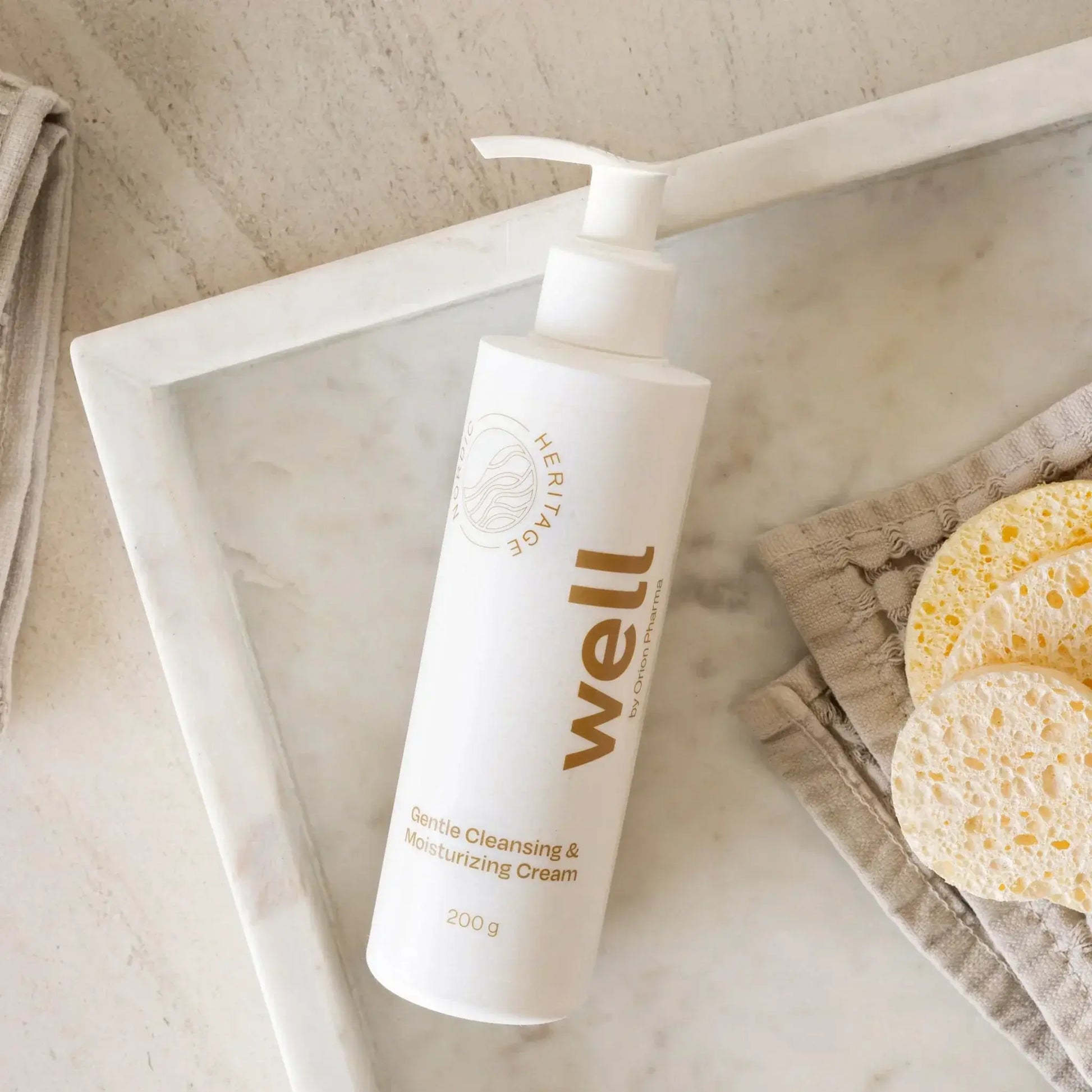
Skincare during pregnancy
February 11, 2025
Pregnancy is a journey filled with physical and emotional changes—your skin being no exception.
While some changes during pregnancy may bring a radiant glow or thicker hair, others, like stretch marks or dark spots, may feel less welcome. Understanding these changes can help you feel more confident and empowered throughout this transformative time.
On this page, we’ll explore the skin changes you may experience during pregnancy and offer expert tips to care for your skin at every step. Whether you’re embracing the glow or navigating challenges, we’re here to guide you with our simple, effective solutions.
What You’ll Learn on This Page:
- How pregnancy hormones affect your skin and hair during pregnancy
- Tips to support your skin health during pregnancy
- What to expect for your skin and hair postpartum
Well by Orion Pharma
Mama Bundle
5.0 / 5.0
(2) 2 total reviews
Gentle skincare for pregnancy and postpartum. The bundle includes 1) a cleansing and moisturizing cream, 2) a facial serum, and 3) a body serum.




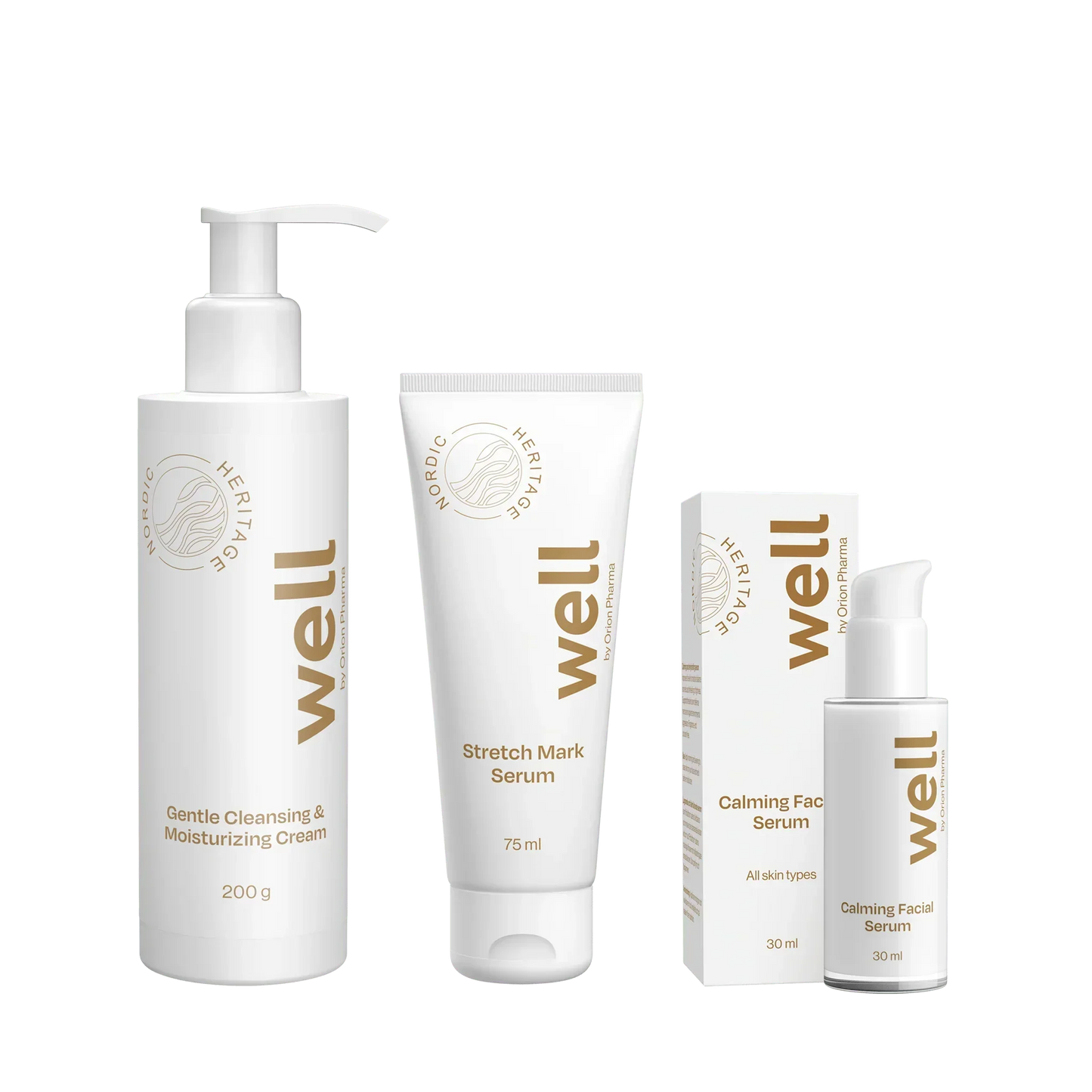
How Pregnancy Hormones Affect Your Skin and Hair During Pregnancy
Pregnancy is a time of incredible transformation—not just for your body but also for your skin. For some, pregnancy can bring a radiant glow and healthier-looking hair thanks to increased estrogen levels. Your skin may feel less oily, easing acne-like symptoms, and your hair might grow faster, shine brighter, and require less frequent washing.
However, for some, the skin changes may feel more challenging. Acne, stretch marks, itching, dark spots (liver spots), and varicose veins can also occur during pregnancy. Stretch marks often appear on the abdomen, thighs, or breasts as the skin stretches to accommodate your growing baby. Liver spots, or pigment spots, can develop on the cheeks or forehead but usually fade postpartum. Use clothing or a high-SPF physical sunscreen to shield your skin from UV rays that can enforce pigmentation.
Pregnancy also affects pre-existing skin conditions. While around 80% of women with atopic symptoms find relief during pregnancy, others may notice their symptoms worsen. Gentle care with our Gentle Cleansing & Moisturizing Cream can help — but consult your doctor for severe skin issues or if you’re planning a pregnancy and need to adjust any treatments.
Tips To Support Your Skin Health During Pregnancy
Your skin deserves a little extra love during this special time. Here are some expert tips to keep your skin healthy and comfortable:
- Stick to Unscented Skincare: Morning sickness can make you sensitive to strong scents. Opt for fragrance-free products like our Gentle Cleansing & Moisturizing Cream to keep your routine soothing and simple, without unnecessary additives.
- Rehydrate Sensitive Skin: Hormonal changes can make your skin feel tight or red. Our Calming Facial Serum is clinically proven to reduce redness and restore balance to your face and neck.
- Support Your Skin’s Resilience: Prevent and care for stretch marks with Stretch Mark Serum to enhance skin elasticity and reduce the appearance of stretch marks during and after pregnancy. Read more about stretch marks here.
- Soothe Sensitive Areas: During and after pregnancy, breastfeeding can lead to sore or irritated nipples. Our Nipple & Barrier Cream provides soothing care and gentle protection, making it a must-have for mums.
- Hydrate from Within: Drinking water (in moderation) supports overall skin health and elasticity.
Well by Orion Pharma
Calming Facial Serum
Clinically tested for proven results (Dermscan 08/2020), this lightweight serum brings calm and comfort to your skincare routine from morning to night.
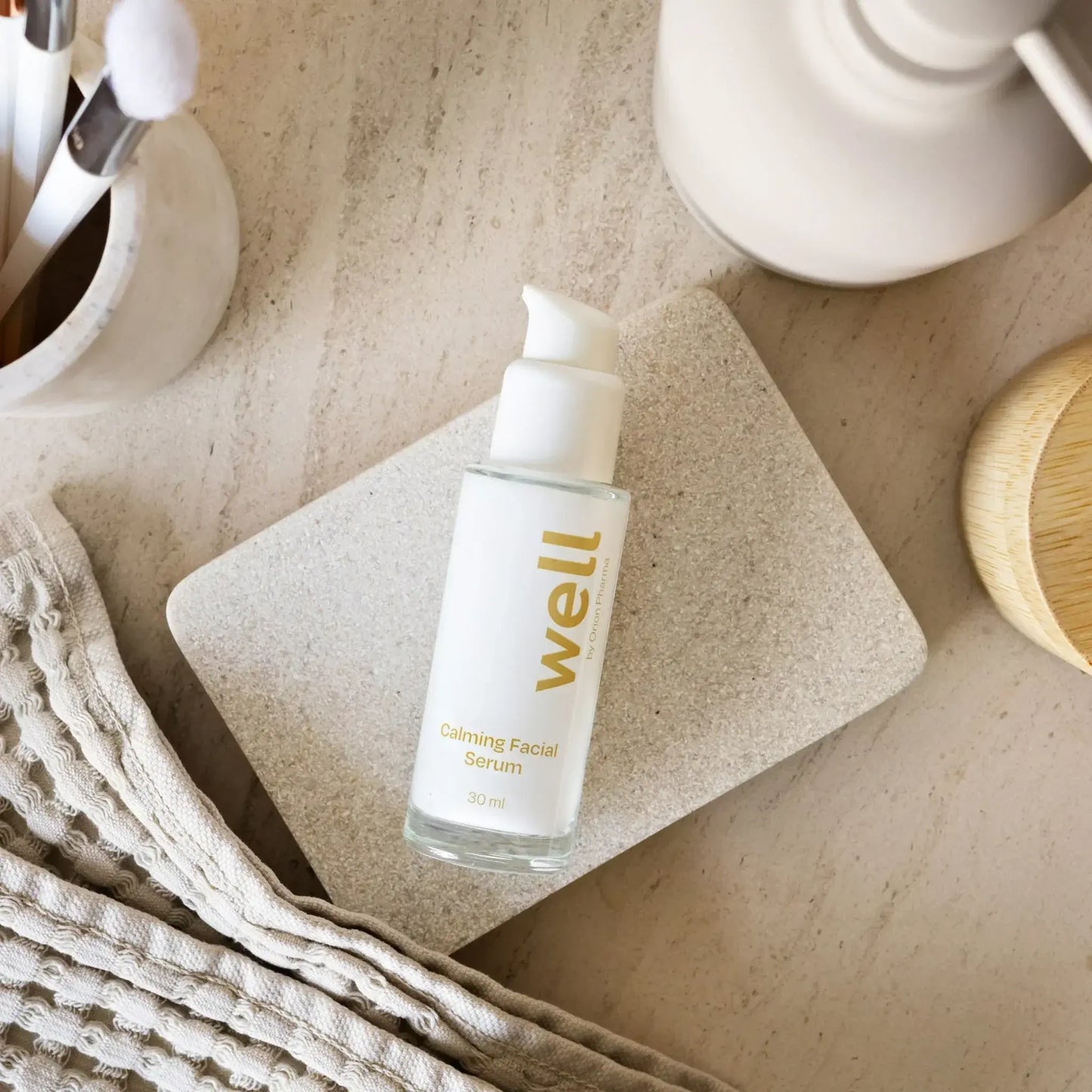
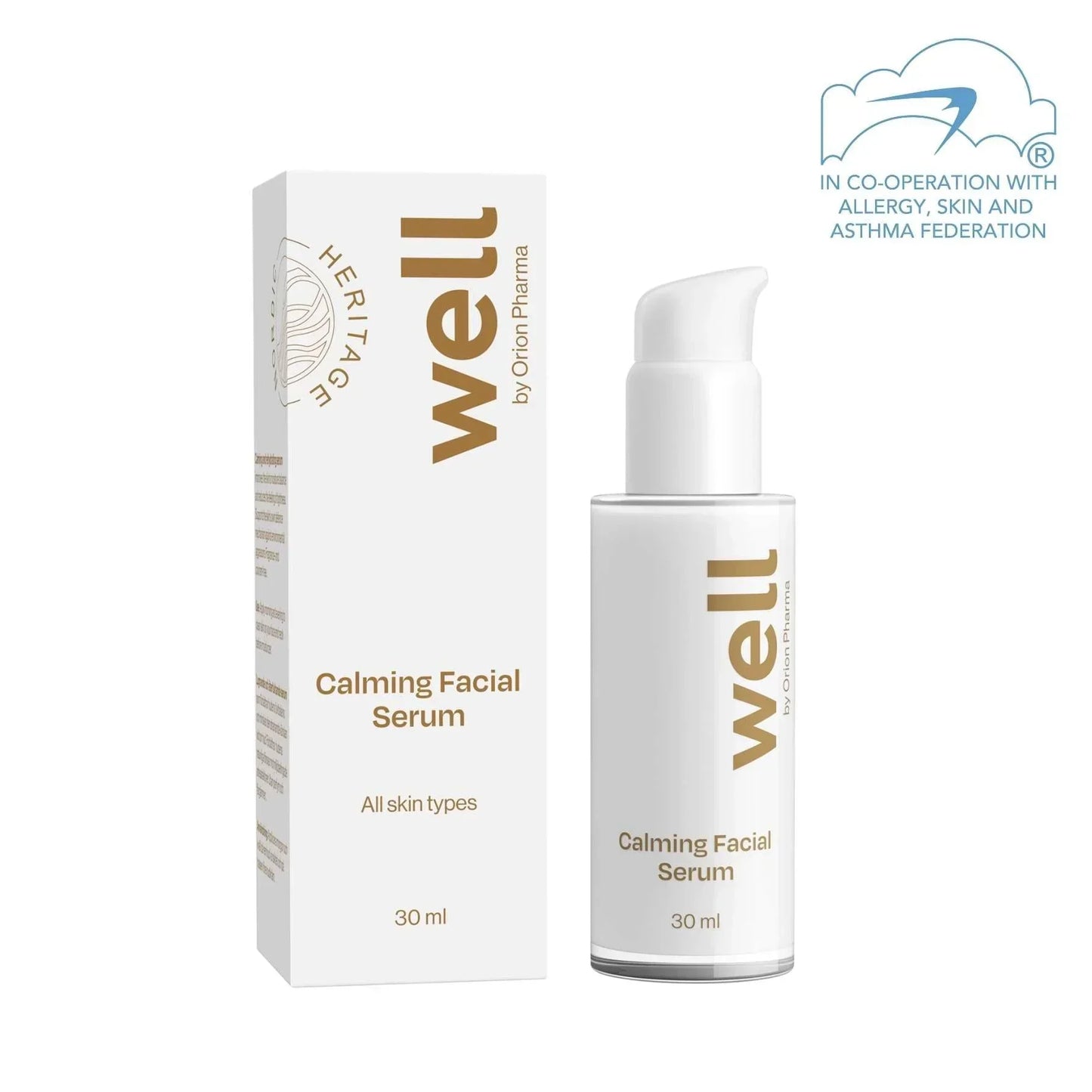
Which Skincare Should Be Avoided During Pregnancy?
When you are pregnant, your skin often becomes more sensitive, and certain ingredients can affect both you and your growing baby. Therefore, it is important to review your skincare routine with fresh eyes. Here, we guide you through some common ingredients – what they do, and how you should think about them during pregnancy.
Retinol
Products with vitamin A, such as retinol creams, are not recommended during pregnancy or breastfeeding. Instead, use mild and nourishing skincare that is recommended for pregnant women.
Salicylic Acid (BHA)
Salicylic acid is common in products for oily skin and acne, but acids can generally be too strong during pregnancy. Choose ingredients that are suitable for sensitive skin and are not active.
Perfumes
During pregnancy, it is recommended to use fragrance-free products to reduce chemical exposure. Many also become more sensitive to strong scents during pregnancy, which can worsen pregnancy nausea.
Chemical Sunscreens
During pregnancy and breastfeeding, it is recommended to choose products that are based on physical sunscreens (titanium dioxide and zinc oxide). Avoid using sunscreens with chemical filters regularly, as various chemical substances can be absorbed through the skin, especially when used on larger skin areas.
What To Expect for Your Skin and Hair Postpartum
Postpartum, your body begins to adjust to its pre-pregnancy state, and your skin will naturally adapt too. It’s normal to experience some hair shedding around three to four months postpartum. This is temporary, and your hair will usually return to its usual fullness over time.
By taking gentle care of your skin during pregnancy and after, you can navigate these changes with confidence and self-compassion. For extra support, explore our Mama Bundle, thoughtfully crafted to provide hydration, soothing care, and nourishment throughout your journey. Because every step of this transformative time deserves care and attention—for you and your s
Well by Orion Pharma
Gentle Cleansing & Moisturizing Cream
3-in-1: cleanser, moisturizer, and in-shower care. Fragrance free and allergy certified.
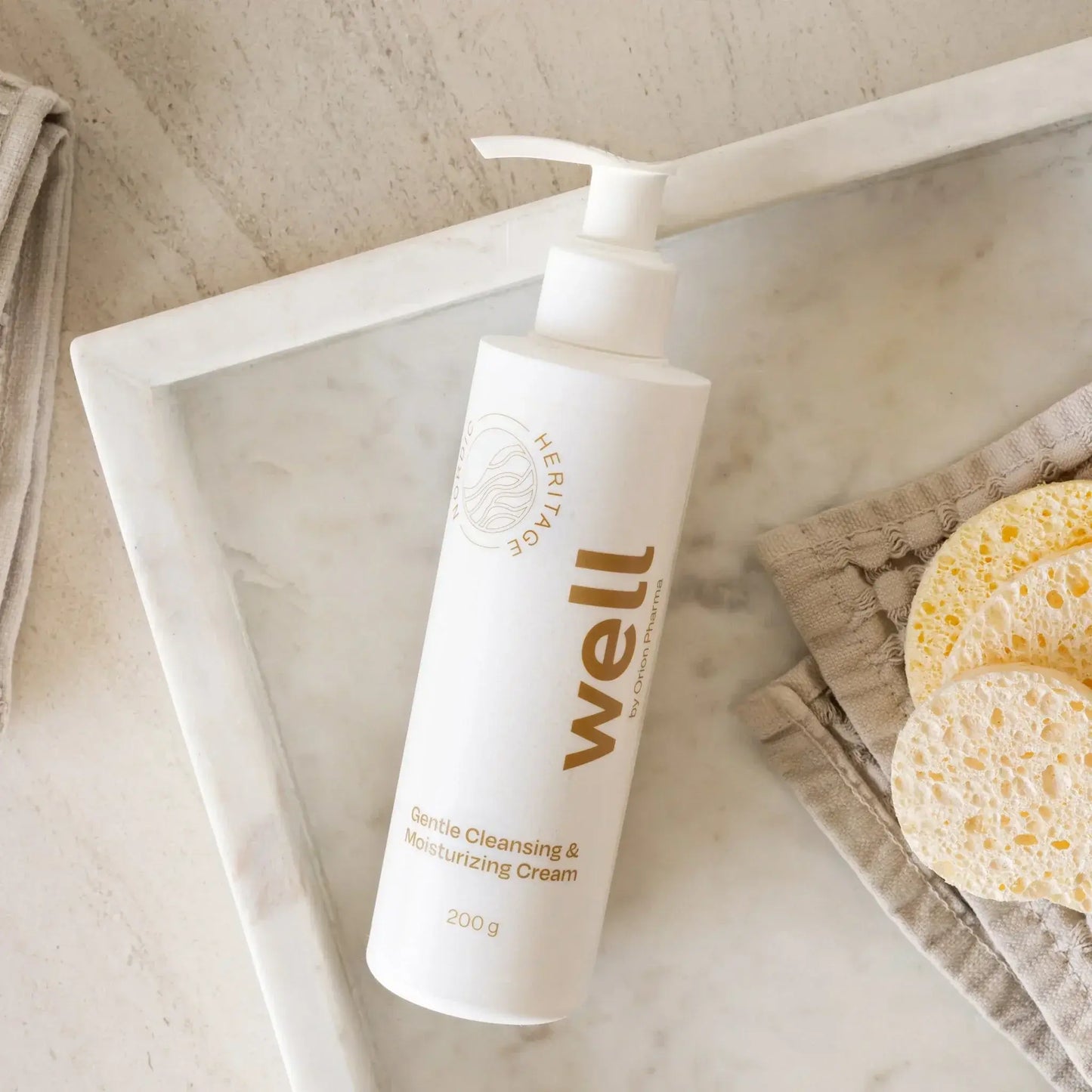




About the author
Tanja Kipinoinen, eCom Manager
Passionate about promoting well-being and improving customer experience in digital channels. Responsible for developing the online store and content in collaboration with experts in dietary supplements and cosmetics development to ensure that information is reliable and easy to understand.
We continuously work to make sure the content we create is high-quality, up-to-date, and engaging. All our content is based on independence, objectivity, and expertise. In addition to our skilled content creators, Orion Pharma’s product specialists regularly review the materials.
Read more
View all-

Omega-3 and vitamins while breastfeeding
Producing breast milk requires extra energy and nutrients. Just like during pregnancy, you need a bit more vitamins and minerals while breastfeeding. A varied and balanced diet helps you meet...
Omega-3 and vitamins while breastfeeding
Producing breast milk requires extra energy and nutrients. Just like during pregnancy, you need a bit more vitamins and minerals while breastfeeding. A varied and balanced diet helps you meet...
-

How to get enough vitamins and omega-3 during p...
To nourish the growing baby, your body needs more of certain nutrients than usual, such as folic acid, iron, iodine, and omega-3 fatty acids. The most important thing is that you...
How to get enough vitamins and omega-3 during p...
To nourish the growing baby, your body needs more of certain nutrients than usual, such as folic acid, iron, iodine, and omega-3 fatty acids. The most important thing is that you...
-

Winter skincare: how to care for dry, sensitive...
The skin’s natural protective barrier becomes thinner in winter, making it more sensitive to wind, frost, and sudden temperature changes. As a result, many people experience redness, flakiness, or even...
Winter skincare: how to care for dry, sensitive...
The skin’s natural protective barrier becomes thinner in winter, making it more sensitive to wind, frost, and sudden temperature changes. As a result, many people experience redness, flakiness, or even...
